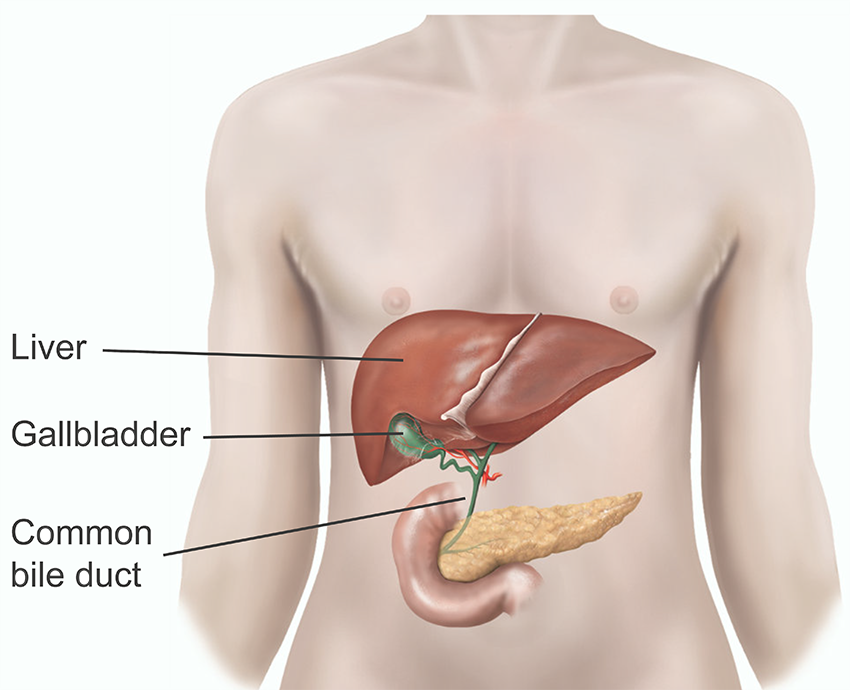
What is a Cholecystectomy?
A cholecystectomy is the surgical removal of the gallbladder, a small, pear-shaped organ that sits beneath the liver. Its primary function is to store bile, a digestive fluid produced by the liver, and release it into the small intestine to help break down fats. When the gallbladder malfunctions—often due to gallstones or inflammation—it can cause severe pain and digestive issues, leading to the need for surgical removal.
Why is Gallbladder Surgery Needed?
Gallbladder surgery is typically required when patients experience complications from gallstones, a common condition where small, hardened deposits form inside the gallbladder. Some common reasons for needing a cholecystectomy include:
1. Gallstones in the gallbladder (cholelithiasis): The most common cause of gallbladder problems, gallstones can block the flow of bile and lead to pain, infection, or inflammation.
2. Gallstones in the bile duct (choledocholithiasis): These stones can block bile ducts, causing jaundice and infections that may become severe if left untreated.
3. Gallbladder inflammation (cholecystitis): This condition often occurs when gallstones obstruct the ducts, leading to painful inflammation that can result in infection or tissue damage.
4. Gallbladder cancer: Though rare, cancer of the gallbladder may necessitate removal of the organ if detected.
5. Biliary dyskinesia: When the gallbladder does not function properly or empties inefficiently, patients may experience digestive discomfort, warranting surgery.
Why is Gallbladder Surgery More Prevalent in January?
Though gallbladder problems occur year-round, January often sees a spike in cholecystectomies. The reasons for this seasonal pattern are primarily linked to lifestyle changes that occur around the holidays and colder months:
1. Dietary Indulgence: The holiday season is typically associated with rich, high-fat foods, which can exacerbate gallstone formation and trigger gallbladder attacks. Fatty meals stimulate the gallbladder to release bile, and if gallstones are present, this process can lead to severe pain and inflammation.
2. New Year Health Resolutions: After indulging in holiday treats, many people resolve to improve their health at the start of the year. As they start exercising and adjusting their diets, gallstones that had been silent may suddenly cause issues, resulting in an uptick in surgeries during the month of January.
3. Delayed Medical Attention During the Holidays: Some patients may experience symptoms of gallbladder problems during the holiday season but choose to postpone seeking medical attention until after the New Year, leading to a surge in surgeries in January.
The Role of a Private Practice General Surgeon vs. Larger Organizations
Choosing the right surgeon for your cholecystectomy is an important decision. While massive hospital systems may seem like the obvious choice, there are distinct advantages to working with a general surgeon in a private practice setting:
1. Personalized Care: In a private practice, the surgeon has the ability to offer more personalized, patient-centered care. You’ll likely see the same surgeon throughout the entire process, from the initial consultation to post-surgery follow-up, fostering a stronger patient-doctor relationship.
2. Direct Communication: Private practice surgeons often have smaller patient loads than large organizations, which allows for direct and open communication. You can expect quicker responses to your questions and concerns, without having to go through multiple layers of administrative staff.
3. Consistency and Continuity of Care: A private practice surgeon provides continuity of care. You’ll work with the same medical team throughout your treatment, whereas in large healthcare systems, patients may encounter different providers, leading to fragmented care.
4. Tailored Surgical Approaches: General surgeons in private practice often have the flexibility to tailor surgical techniques and approaches based on the individual needs of the patient. This could include opting for minimally invasive laparoscopic surgery, which offers quicker recovery and fewer complications, or choosing other methods if deemed more suitable for the patient’s health.
5. Reduced Wait Times: Larger healthcare systems often have longer wait times due to their size and patient volume. With a private practice, patients frequently experience faster scheduling and more convenient appointments, enabling them to resolve their gallbladder issues sooner.
6. Cost Transparency: Private practice surgeons tend to offer clearer pricing models and work closely with patients regarding insurance and payment plans. In contrast, navigating the cost structure within large organizations can often be more complex.
Gallbladder surgery is a common, effective solution for addressing painful gallstone conditions and other gallbladder-related issues. January tends to be a peak time for cholecystectomies, with holiday eating habits and New Year’s health changes playing significant roles. Opting for a general surgeon in a private practice allows patients to receive more personalized, responsive, and consistent care. If you’re facing gallbladder issues, a private practice general surgeon can provide high-quality care without the administrative complexities of larger healthcare systems.
To schedule a consultation with Dr. Anuj Dua, call our office at (770) 704-6101 and put our expertise to use for you.
